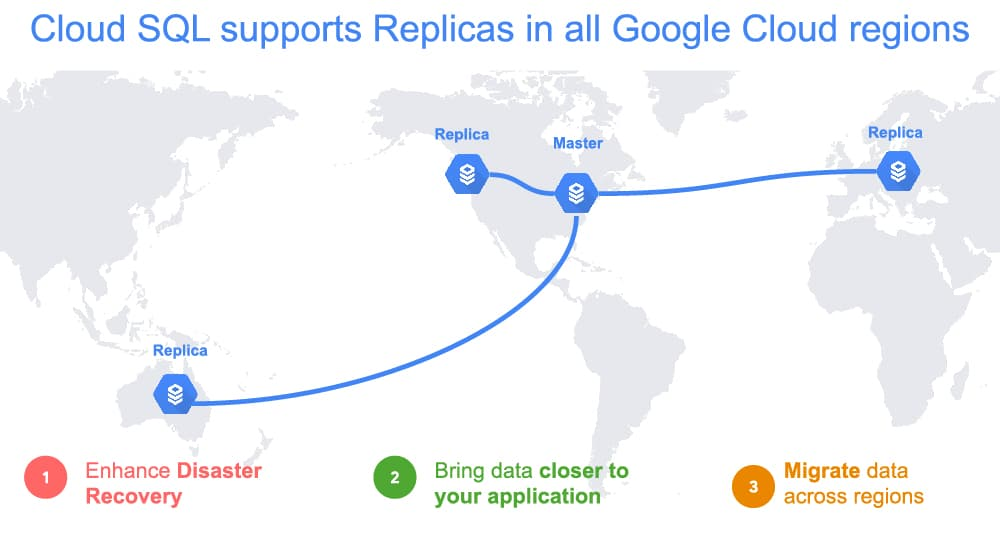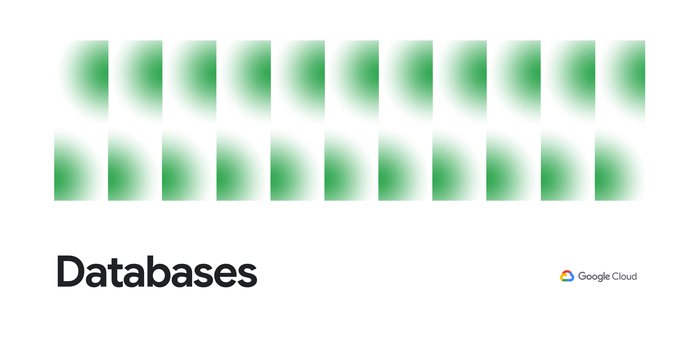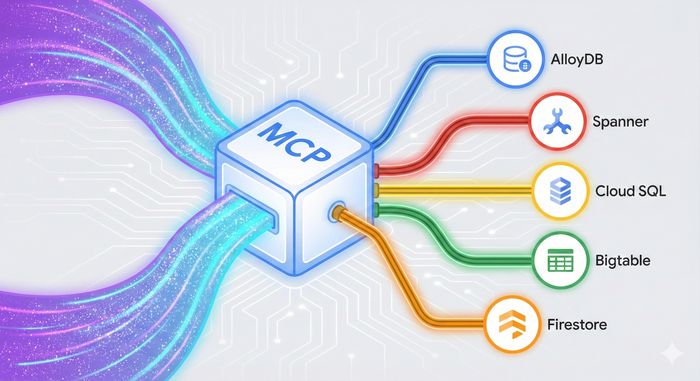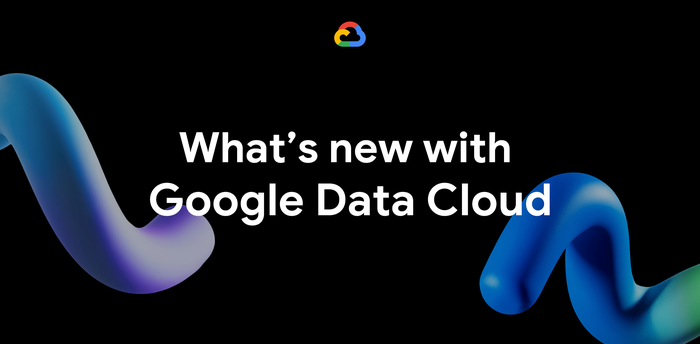MySQL 8 is ready for the enterprise with Cloud SQL
Brett Hesterberg
Product Manager, Google Cloud Platform
Today, we’re announcing that Cloud SQL, our fully managed database service for MySQL, PostgreSQL, and SQL Server, now supports MySQL 8. This means you get access to a variety of powerful new features—such as instant DDL statements (e.g. ADD COLUMN), atomic DDL, privilege collection using roles, window functions, and extended JSON syntax - to help you be more productive. And, as a managed service, we'll ensure your MySQL 8 deployments help you stay stable and more secure. You'll get automatic patches and updates, as well as our maintenance controls so you can reduce the risk associated with upgrades. More so, we’ve fully integrated it with Cloud SQL’s high availability configuration and security controls, to make sure your MySQL 8 database instance is enterprise ready.
High availability and Disaster Recovery
Considering a wide variety of failure scenarios, from localized problems to widespread issues, is an important party of business continuity planning. With MySQL 8 on Cloud SQL, you enable high availability (HA) to ensure your database workloads are automatically fault tolerant in the event of an instance-level problem or even a zone outage.
We’ve worked closely with Cloud SQL customers facing business continuity challenges to simplify their experience with support for cross-region replication. Cross region replication for MySQL 8 is supported in all Google Cloud regions.


Security
Cloud SQL is designed to provide multiple layers of security without complexity, whether you're looking to protect your data or comply with regulations. Encryption of data is a foundational control, which is why Cloud SQL encrypts data at rest by default. For organizations that have sensitive or regulated data, we offer customer-managed encryption keys (CMEK) to support compliance with regulatory requirements and maintain control of your own encryption keys.
To secure connectivity to your MySQL 8 instance, you can use private services access and VPC Service Controls. Private services access gives your database instance a private IP address, using Google Cloud VPC. Because VPCs are global, creating a cross-region replica requires no networking setup. Global VPC uses private IP for replication traffic between regions—helping to eliminate the need for complex VPN and VPC configuration, which would otherwise be needed to set up cross-region networking. With VPC Service Controls, you can define fine-grained perimeter controls to make your Cloud SQL API accessible only from within your service perimeter.
Ready to build?
Combine powerful availability and these security features to quickly build a scalable and fault tolerant application, using the Cloud SQL Proxy, our connection management integration with Google Kubernetes Engine (GKE). The Cloud SQL Proxy automatically encrypts connections without the need to manually configure SSL and makes connecting from GKE easy. With more than than 500,000 proxy instances deployed on GKE, this is a popular option. See for yourself by building an application with our Codelab.
Can I apply my Committed Use Discounts?
We built Committed Use Discounts so you attain the savings you expect—no matter how you configure your resources or which database you select. The discounts also apply to usage from all versions supported by Cloud SQL, including MySQL 8. Feel free to start using MySQL 8 and know that you don’t need to make any manual changes or updates to realize savings from your existing Committed Use Discounts.
What’s next for Cloud SQL
Support for MySQL 8 has been a top request from users. We’re committed to compatibility and bringing you more frequent version updates in the future. We’re also committed to making sure new database versions are fully integrated with the Cloud SQL platform so you can run your most sensitive and critical applications. Have more ideas? Let us know what other features and capabilities you need with our Issue Tracker and by joining the Cloud SQL discussion group. We’re glad you’re along for the ride, and we look forward to your feedback!


